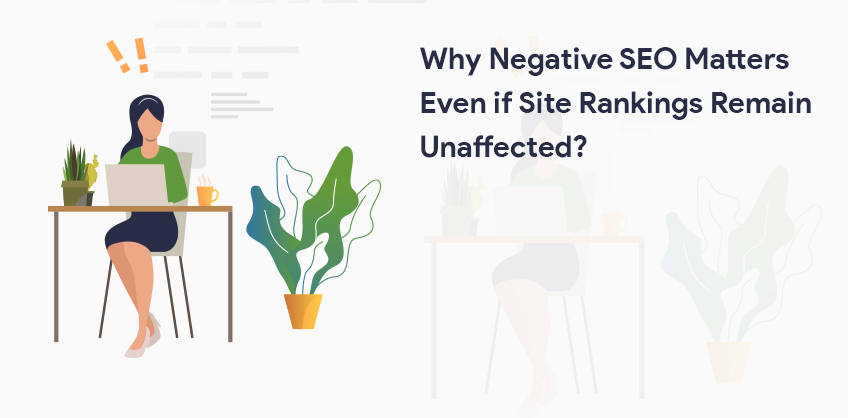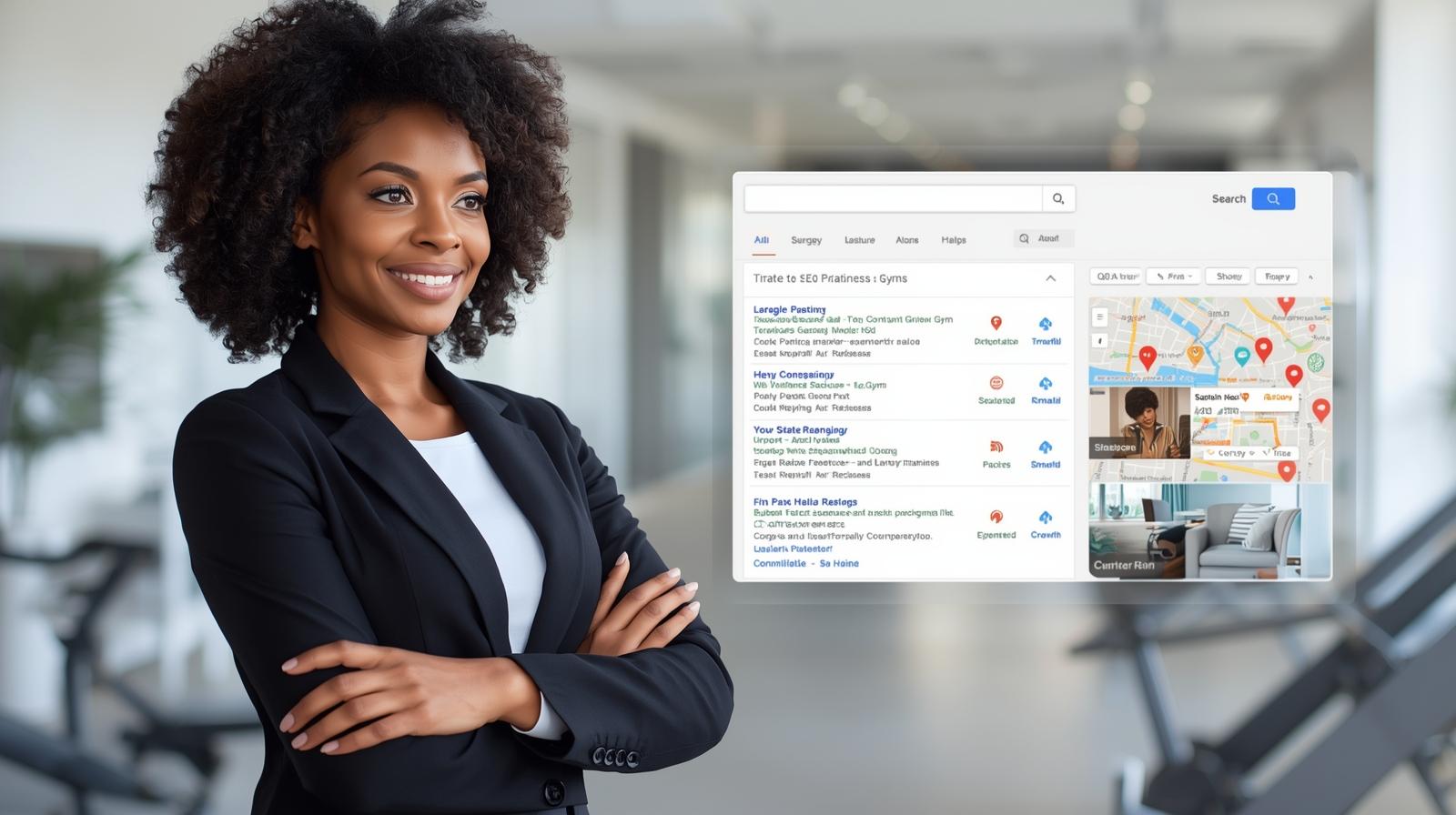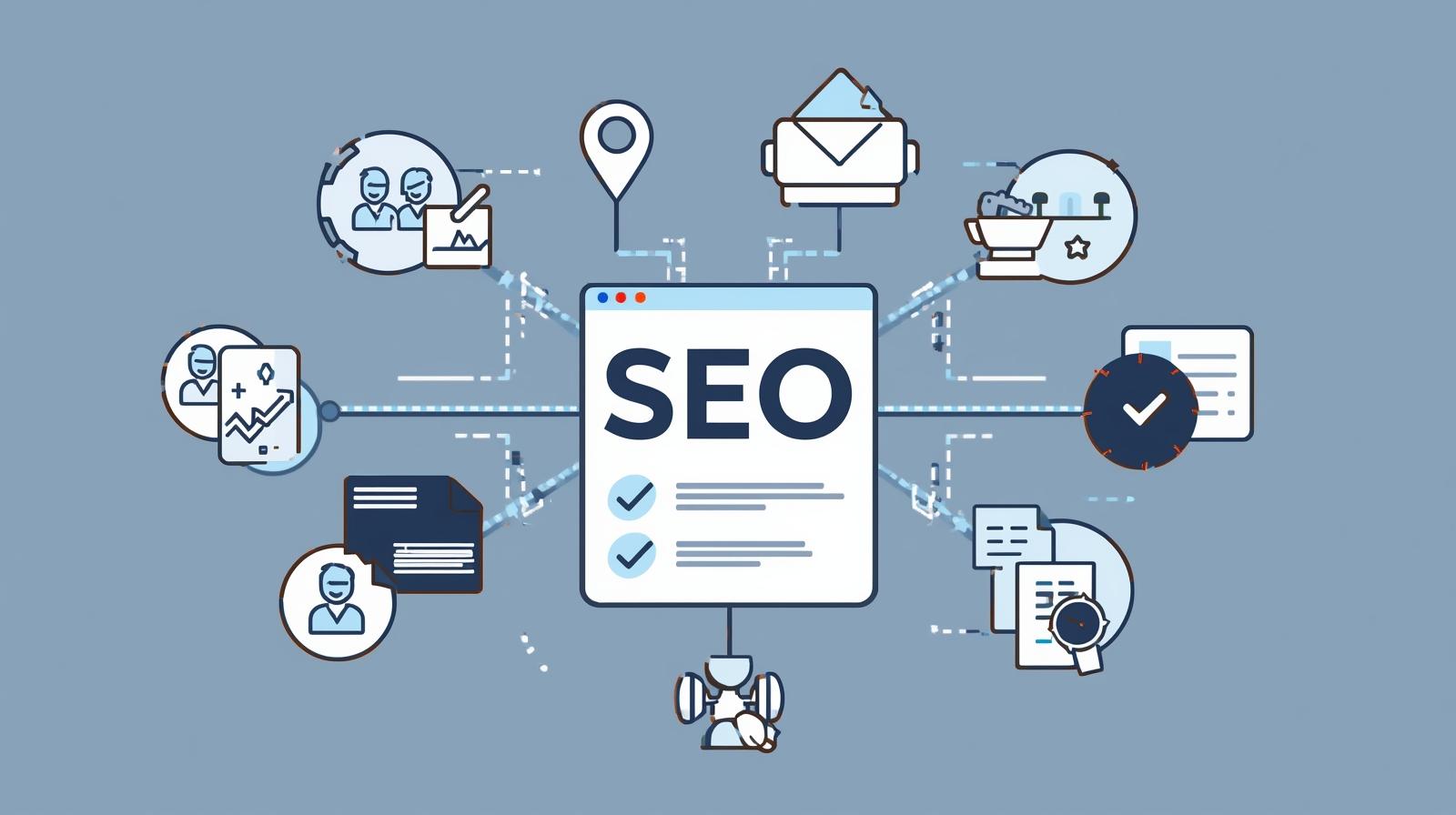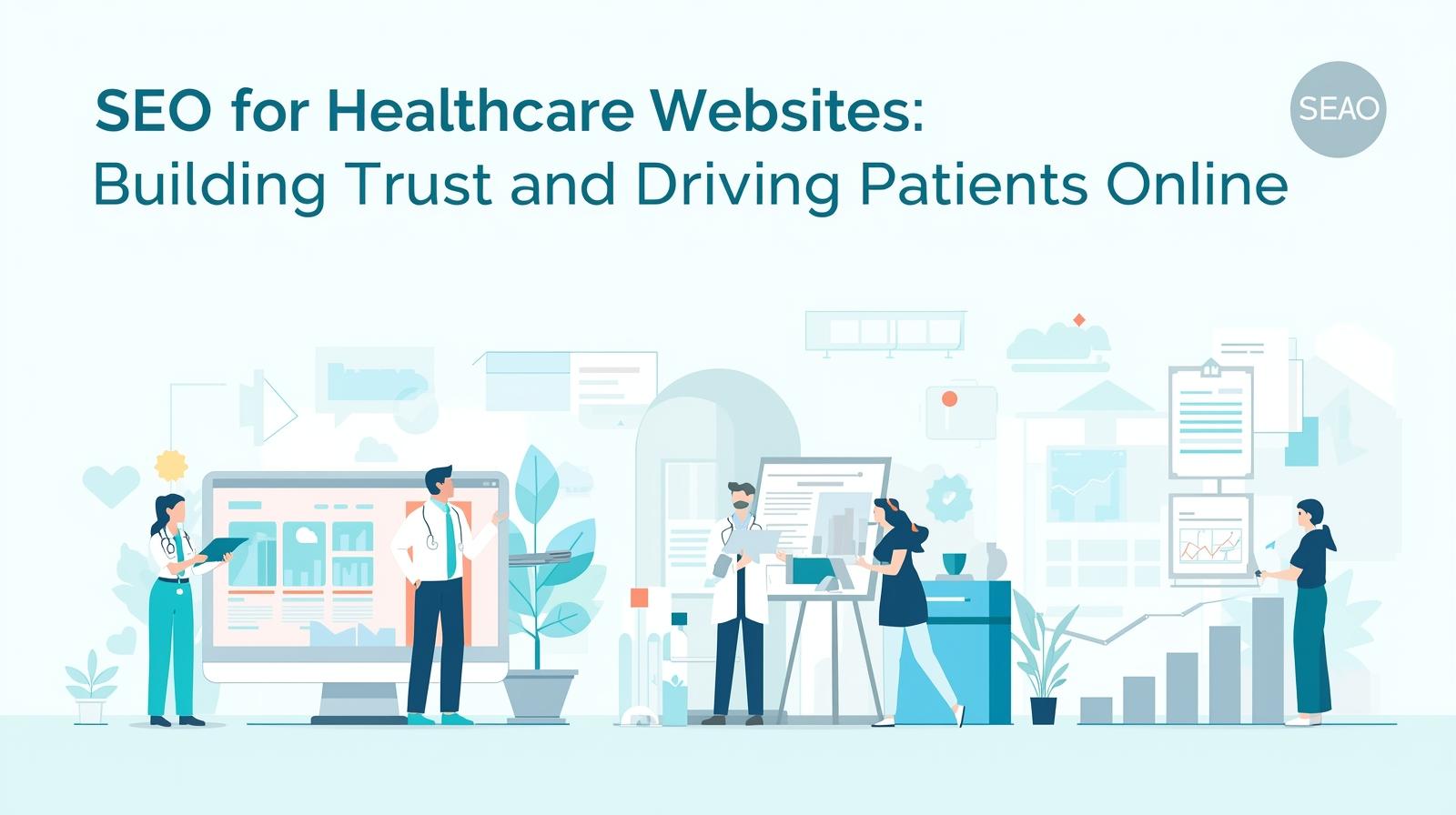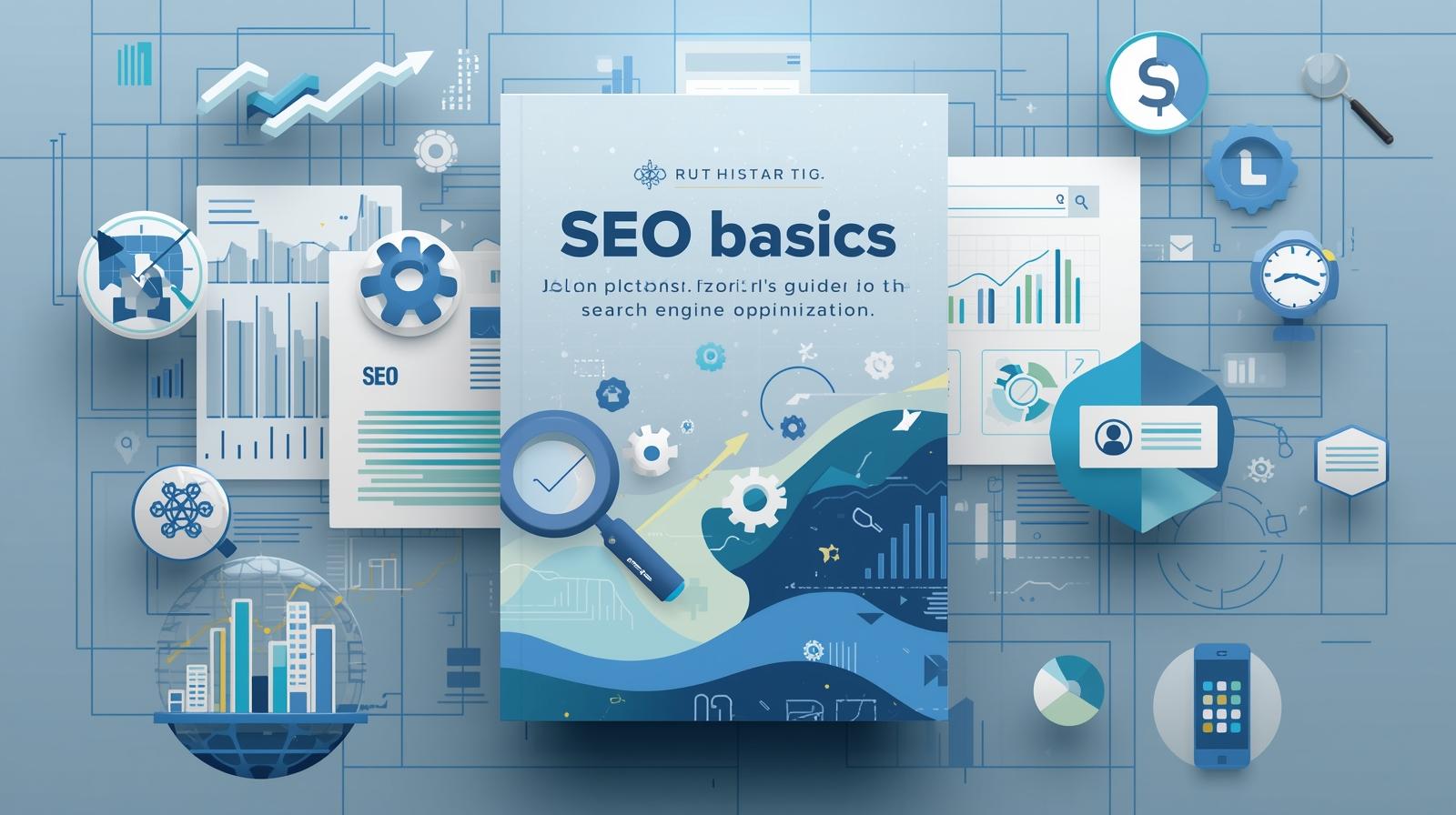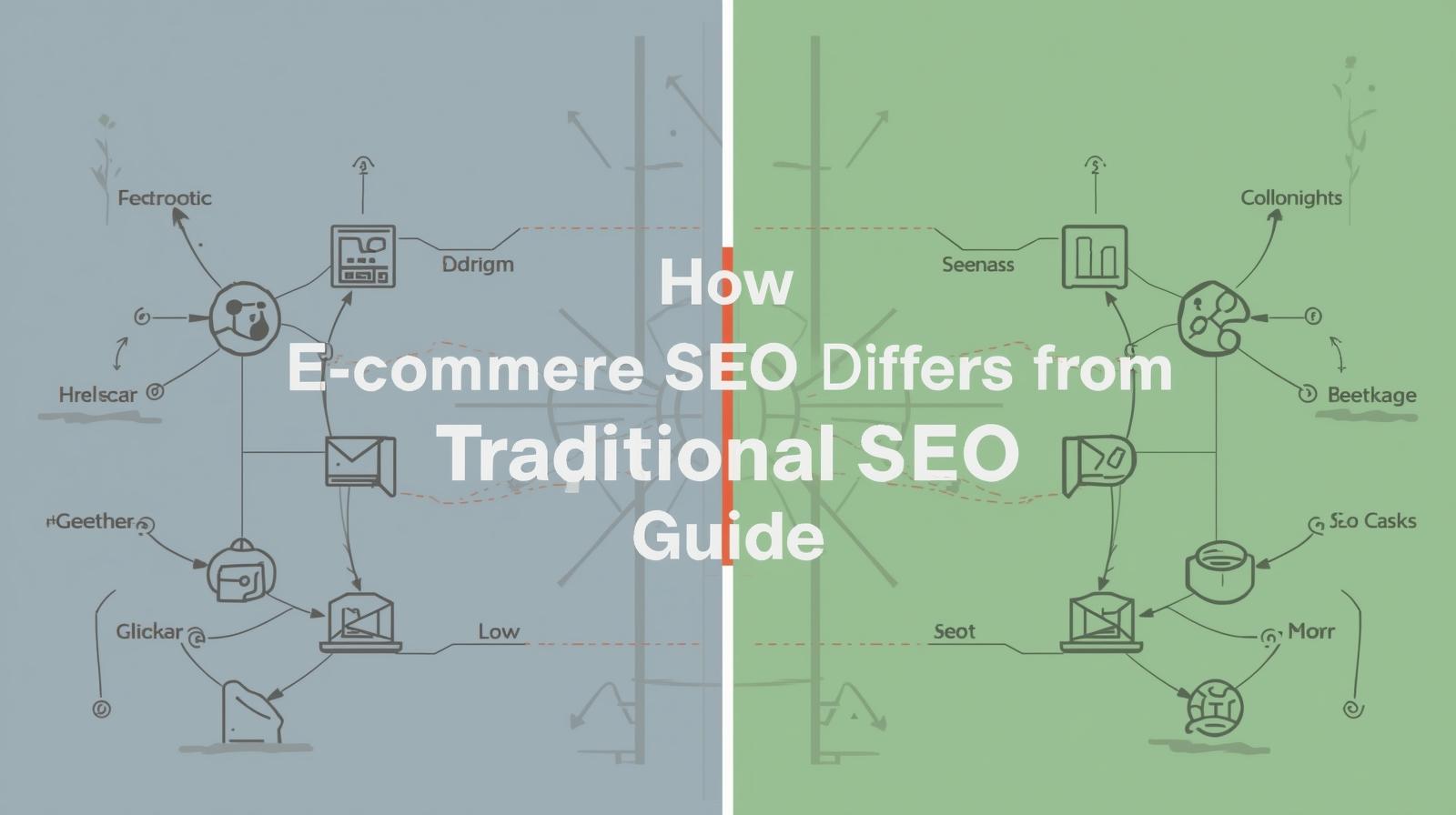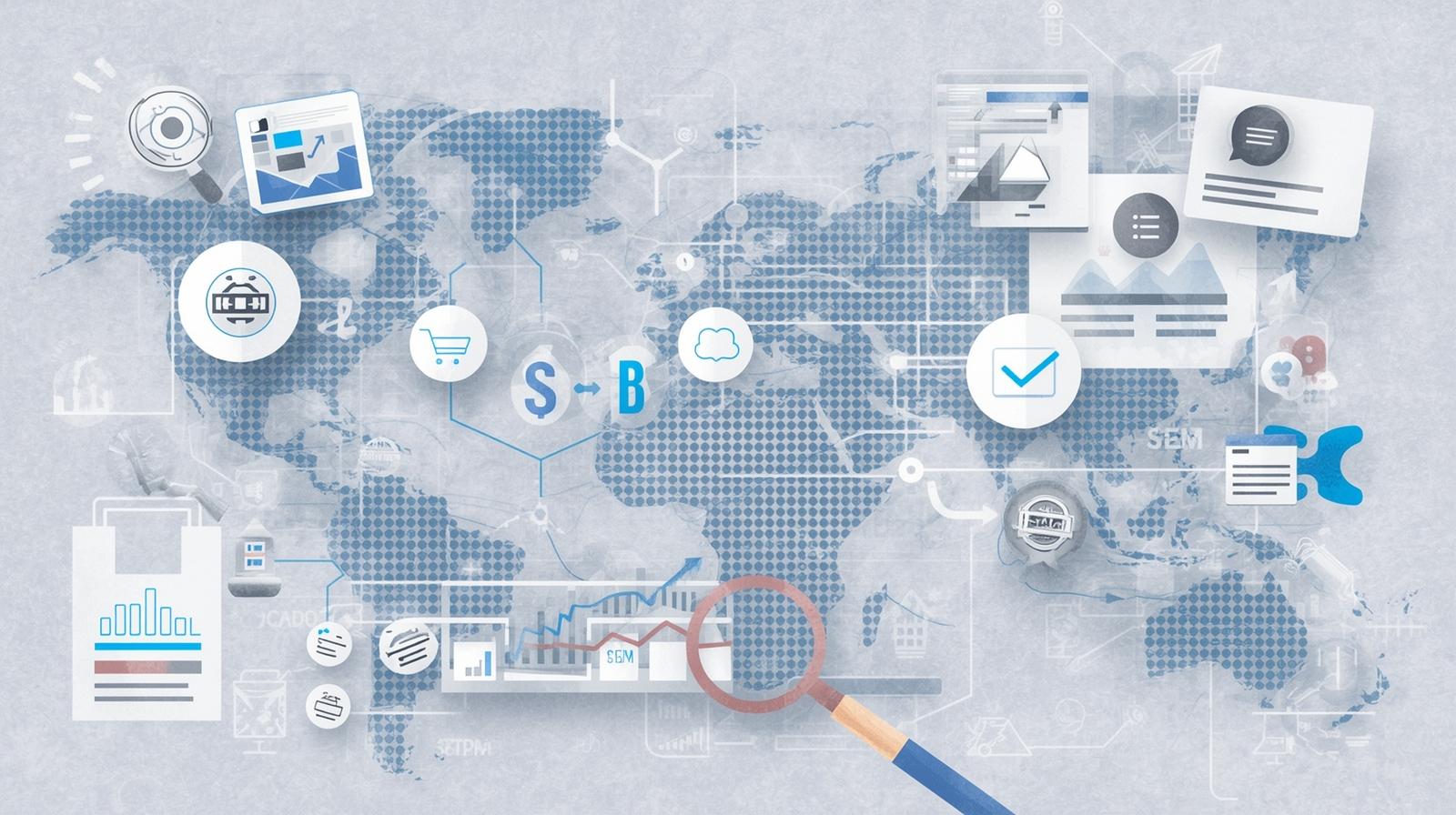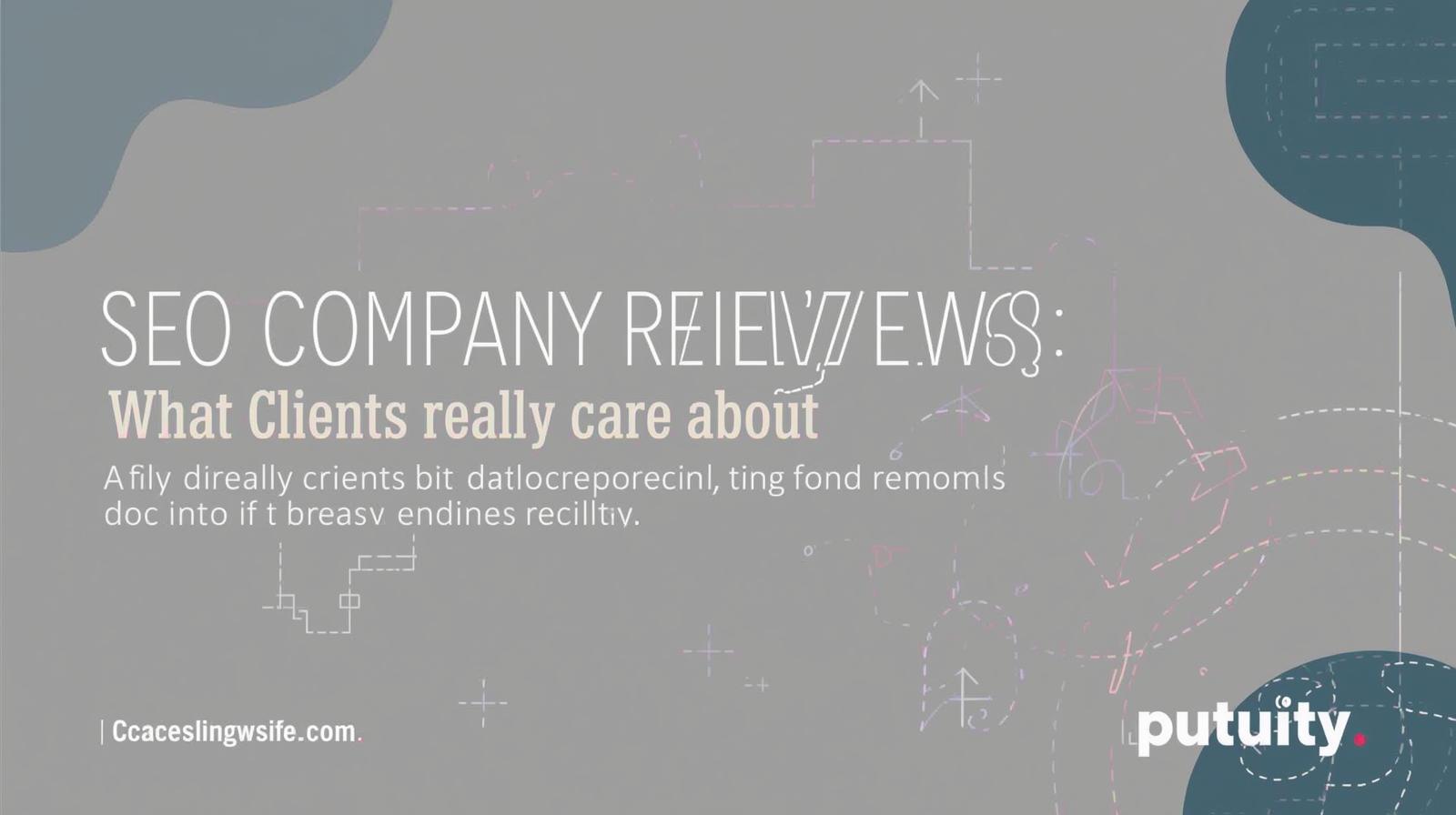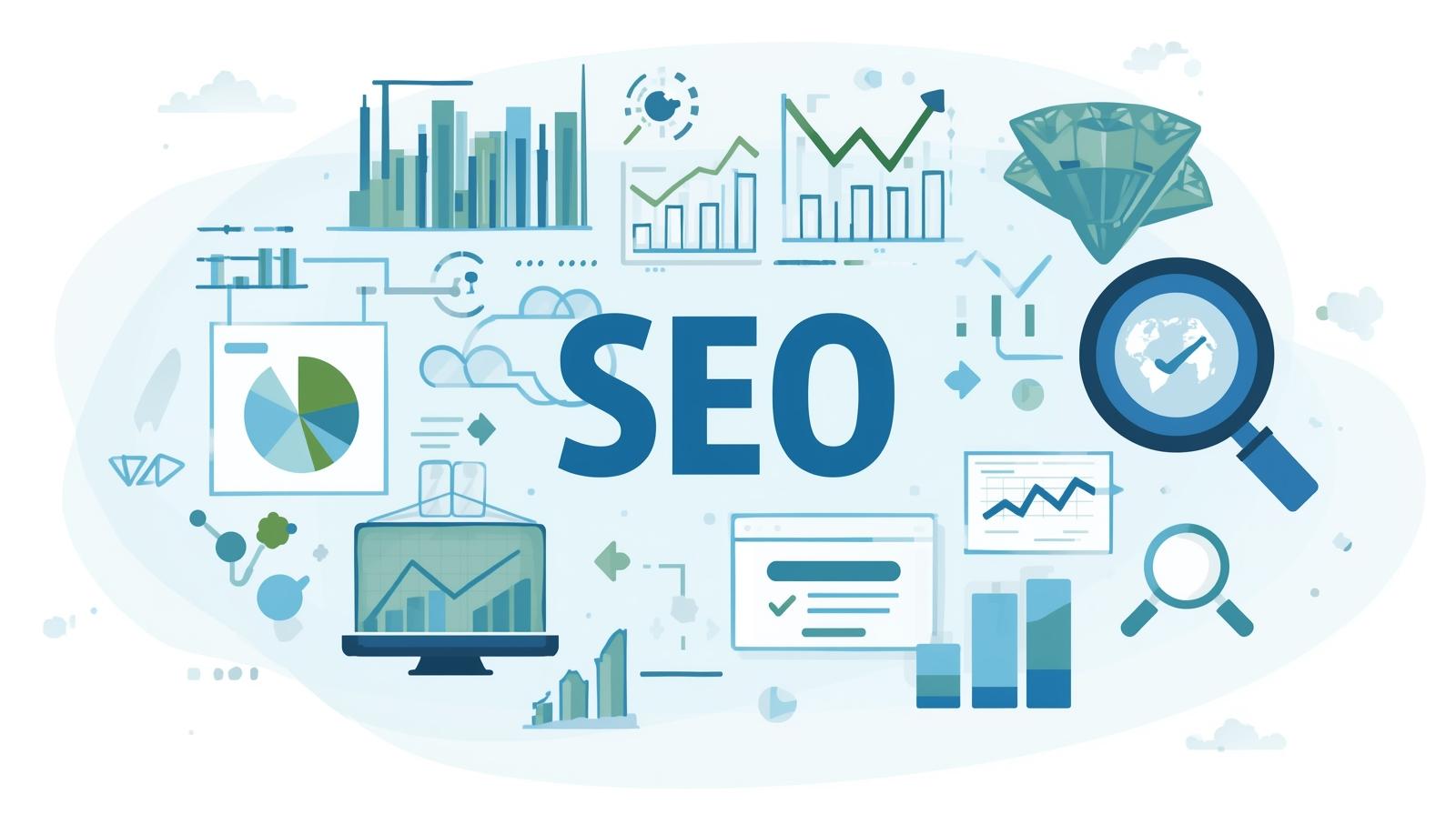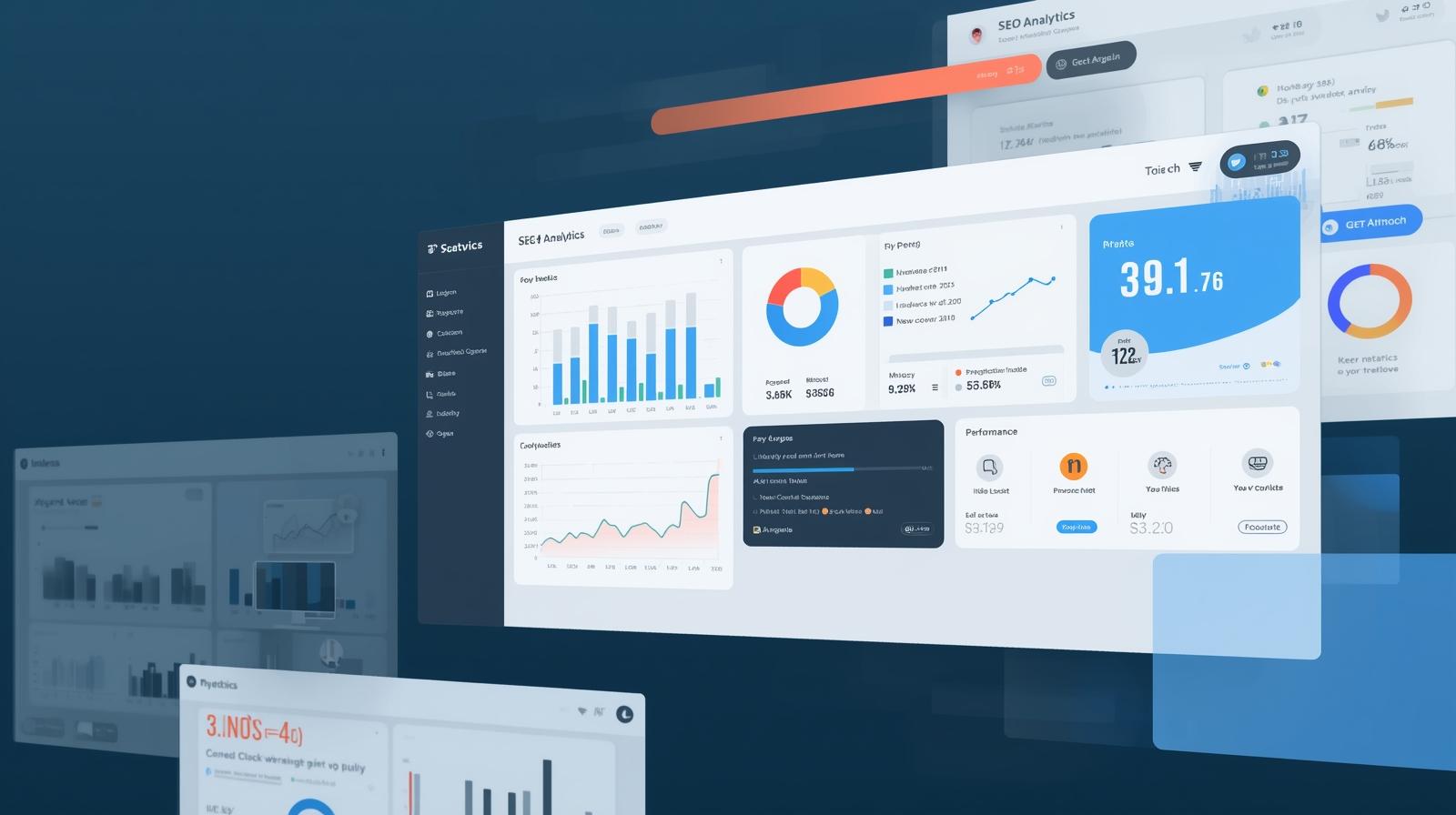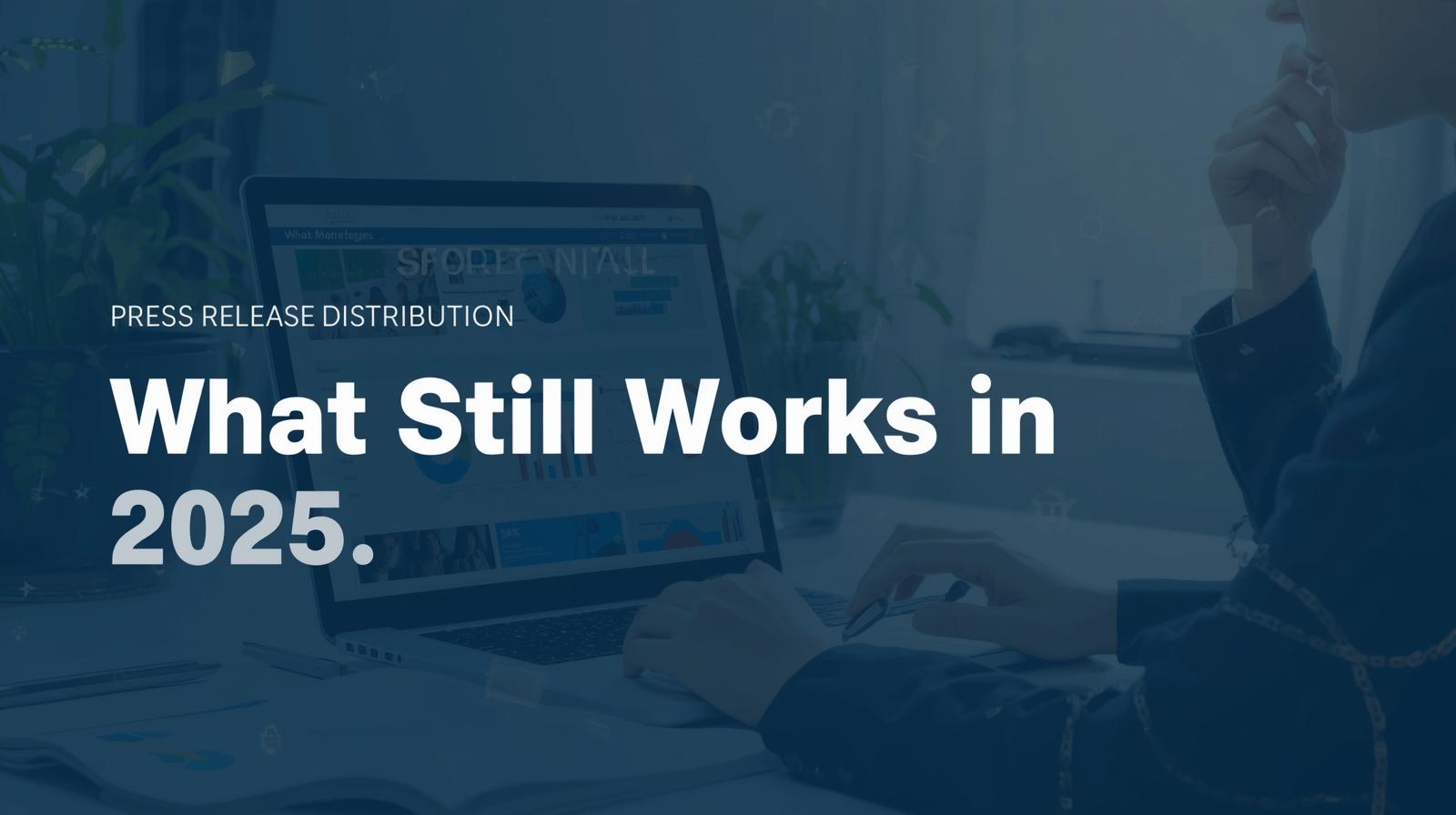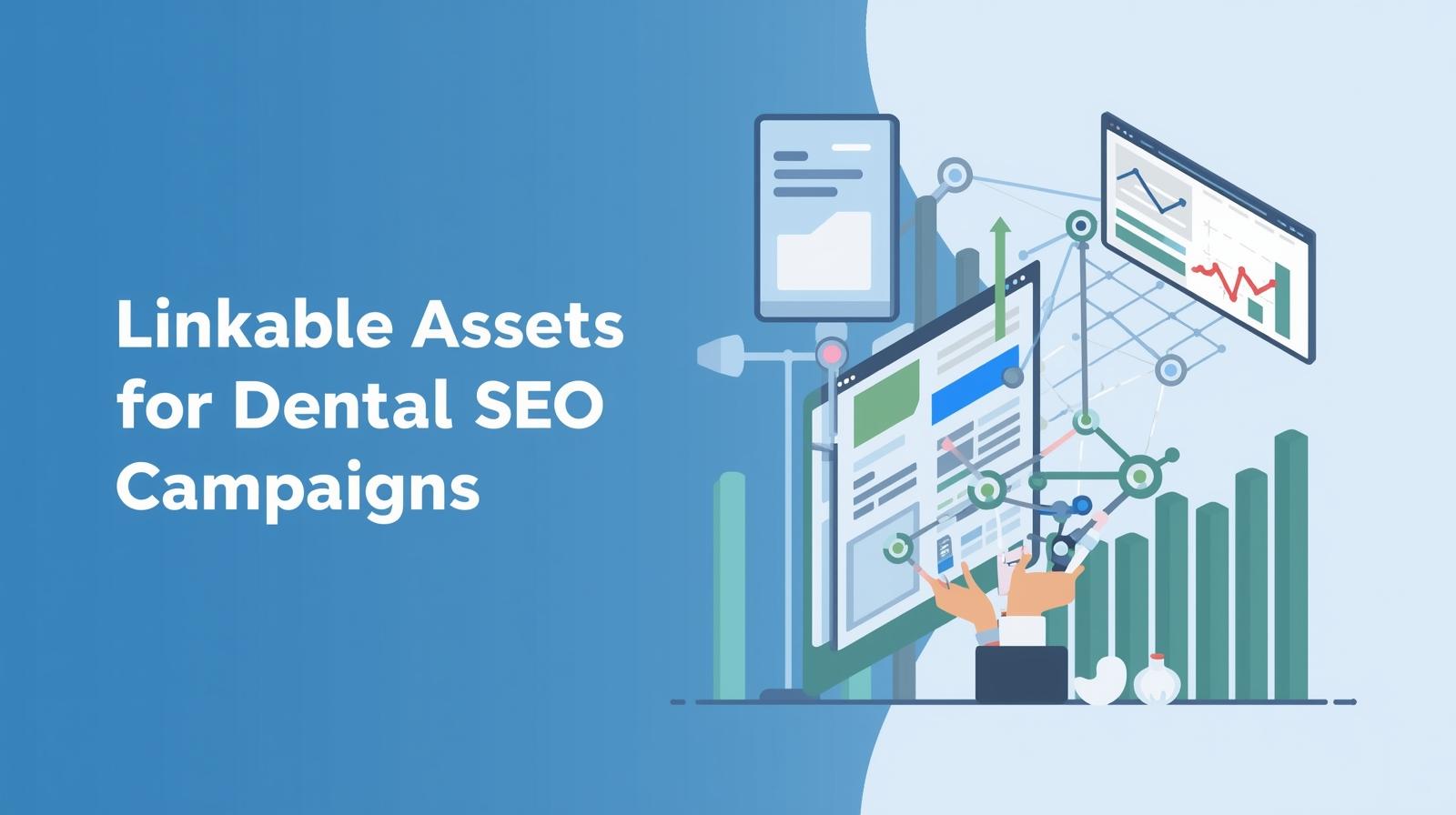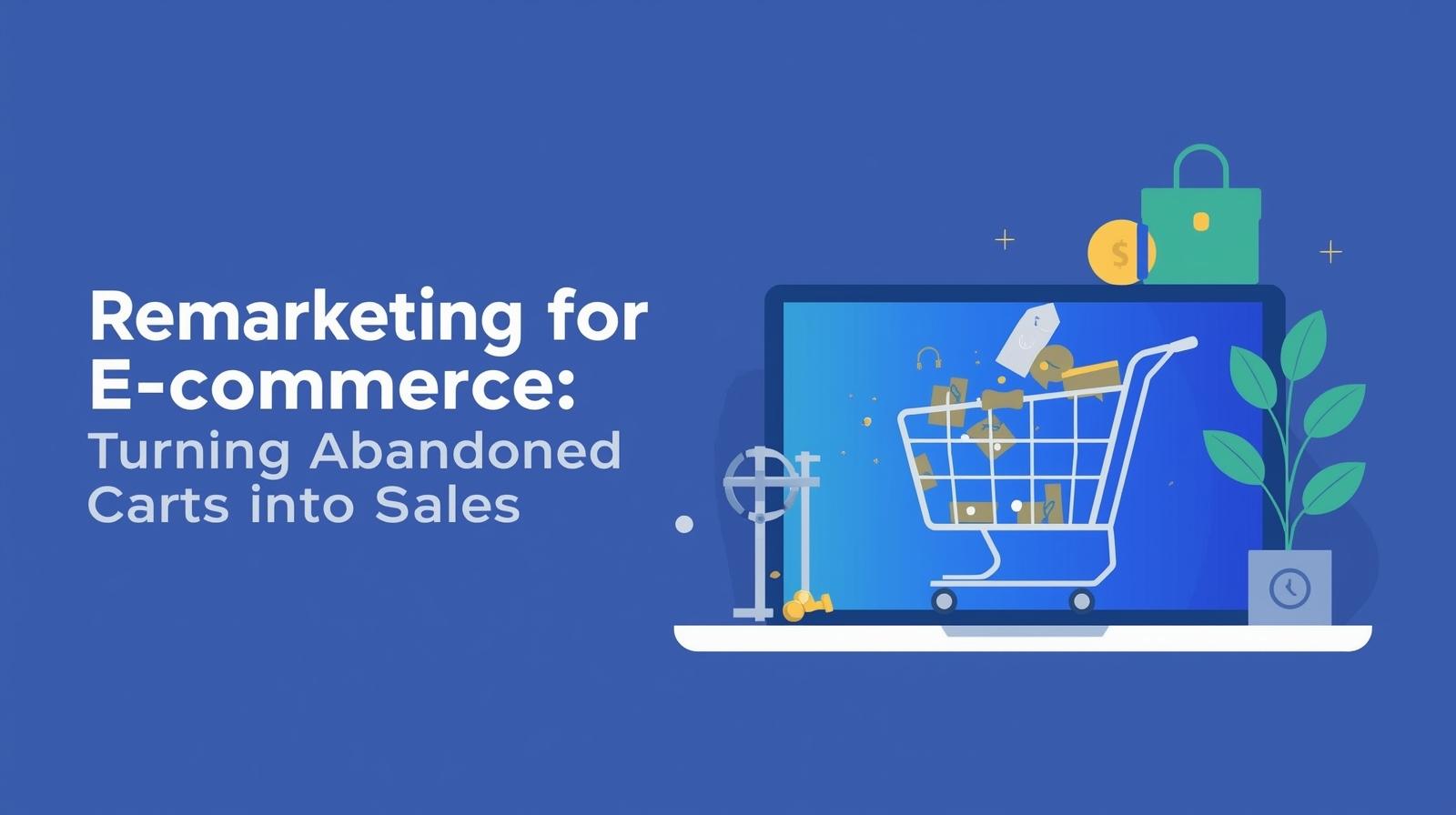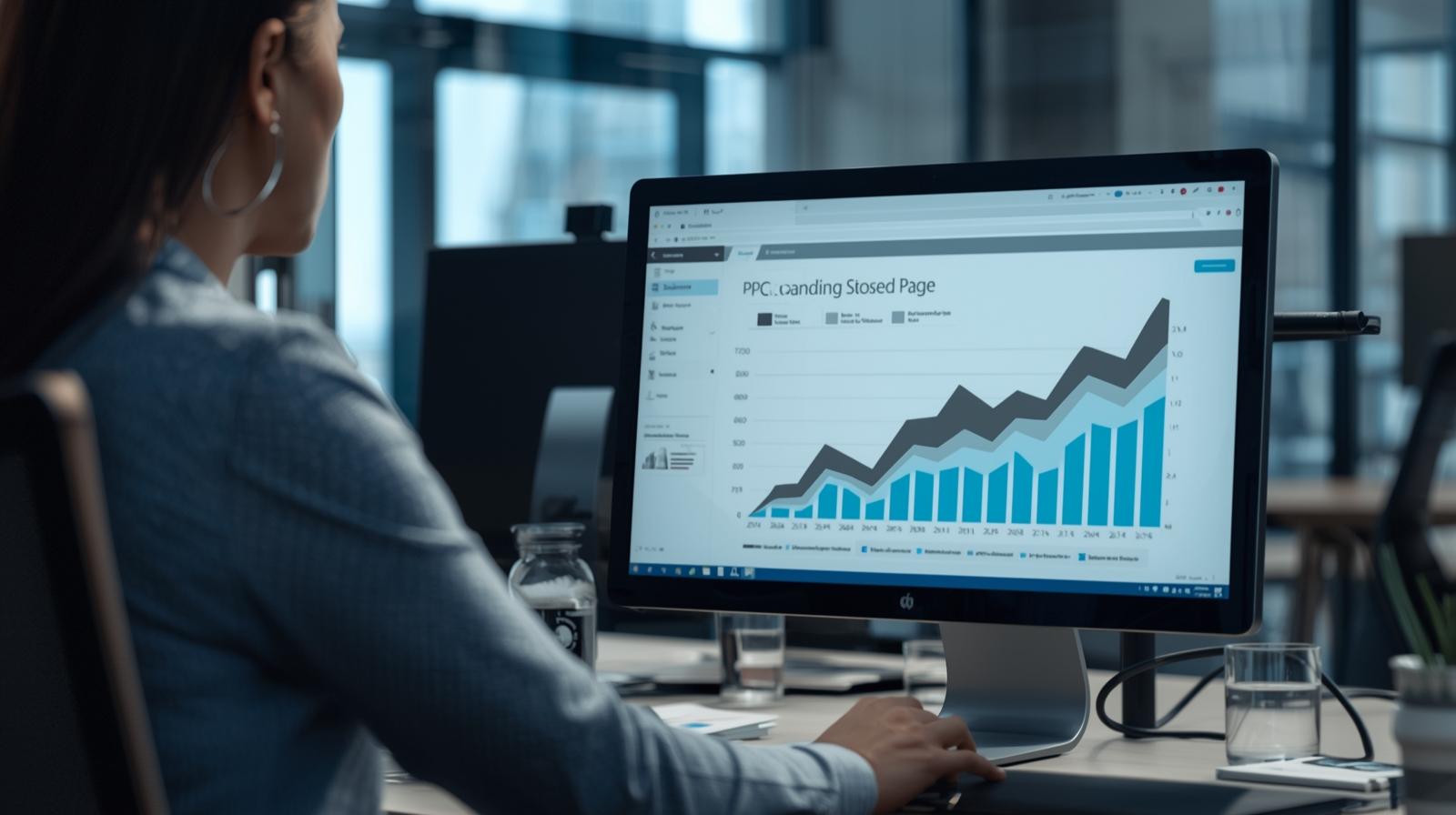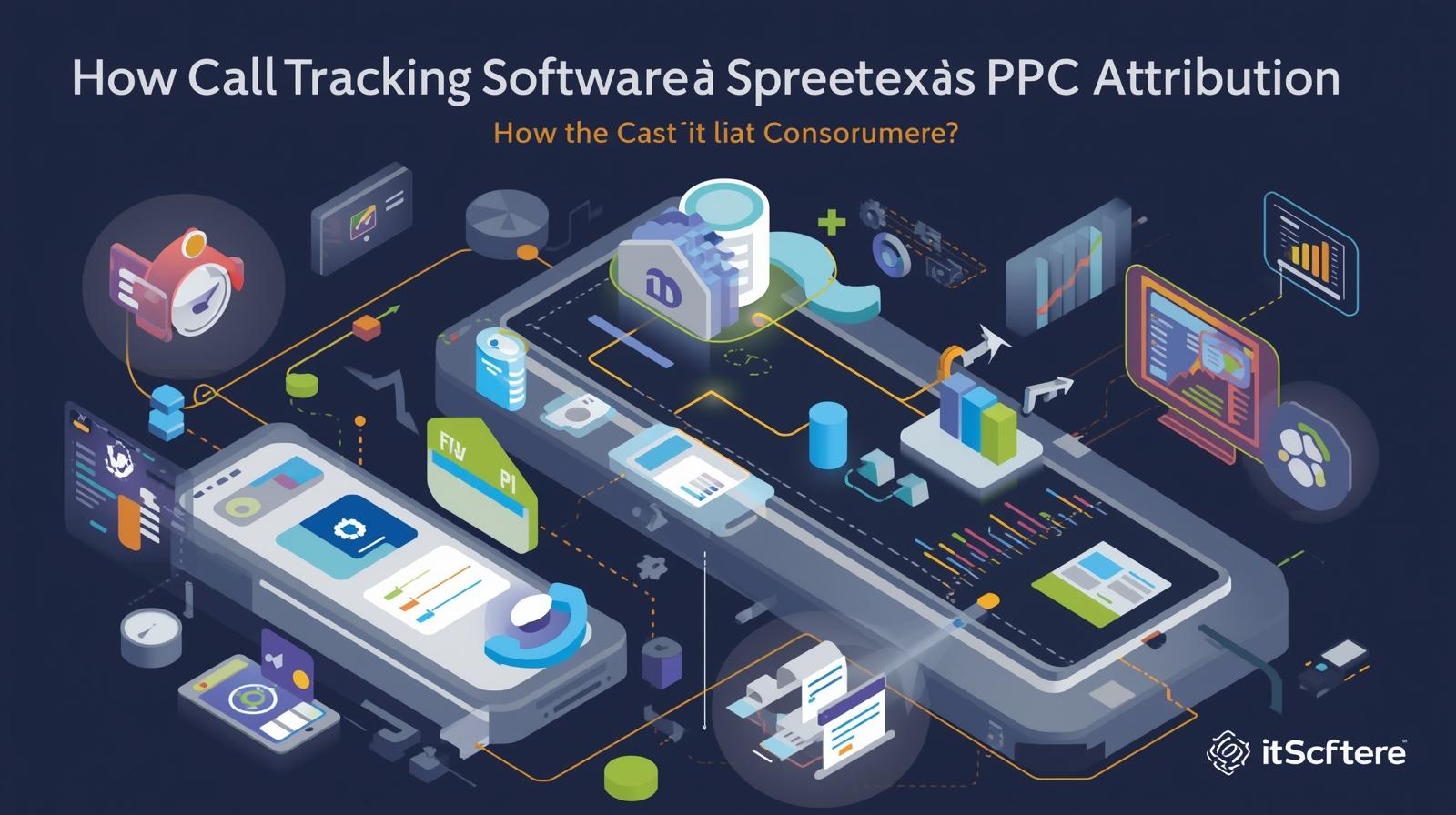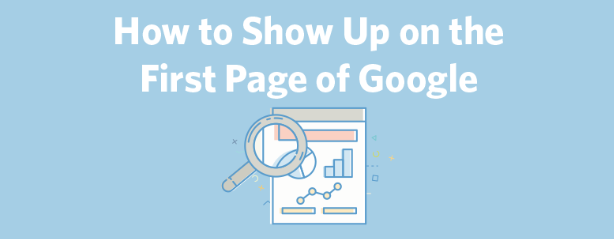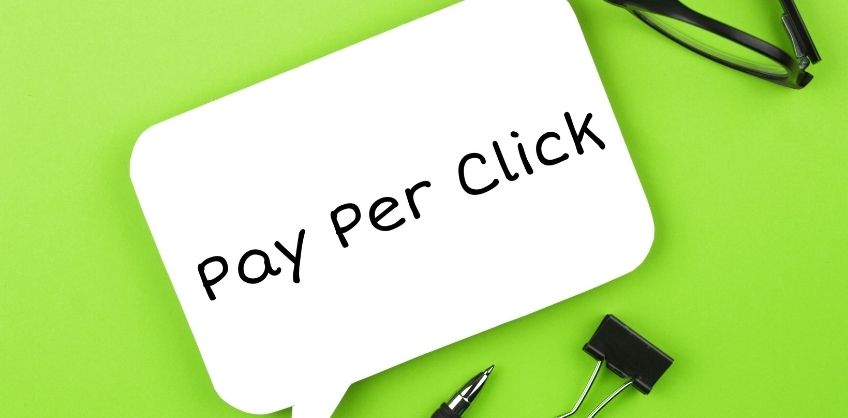April 03, 2020
If your rankings remain unaffected by negative SEO, does that save the hurt that it causes to your website? Well, the answer is a No! So, read ahead in and see what is negative SEO, what it can impact beyond the rankings and tips to battle it. Let’s dive in:
What is Negative SEO?
Negative SEO alludes to the act of utilizing a black- hat and unscrupulous techniques to undermine a contender's rankings in the search engine results. Negative SEO can take place in various forms:
Hacking your site

Building hundreds or thousands of malicious redirects to your site - Well, to understand this is not much difficult, for instance, take your competitor who buys hundreds or thousands of spammy links and points them to your site in order to knock your site out of the search results. This will eventually make Google think that you got all those spammy links to improve your site’s ranking, thereby penalizing you for actions undertaken by the competitor.
Duplicating your content and conveying it everywhere throughout the web
Directing links toward your site utilizing certain keywords like Viagra, poker on the web, and numerous others
Making counterfeit social profiles and ruining your online reputation ultimately
Removing the best backlinks that your site has got
Well, negative SEO in most of the cases does not impact the search engine rankings but it brings other problems. Let’s read:
Problem 1: Corrupt Data
The primary issue is that on the off chance if 100,000 redirects point to your site, what is really going on is the corruption of data which is crucial for decision making on the search results.
In the event that you get the said 100,000 links pointing to your site, it is going to push you over the limit set by Google Search Console for the number of links that will be offered back to you in the different reports regarding these said links.
Well, negative SEO corrupts data and this, in turn, pushes out the good links. This statement implies that there are links which you should be probably caring about but they don't appear in the report just in light of the fact that Google cuts off at 100,000 links while exporting. And if you think that isn’t a big deal, you need to think about it again! In case you're attempting to settle on choices about how to improve your rankings and you can’t get access to the data you need just because the same has been supplanted with a number of spammy links, maybe in hundreds or thousands, at that point, you're not going to have the option to settle on the correct choice.
There is also an increased cost for access to the data and this indeed poses a major problem. For instance, you can get the information for the links that are in excess of 100,000 pointed to your site but there is an increased cost that has to be borne by you in order to have access to it. For instance, you can use the Link Explorer by Moz in order to gain access to the records that can deliver the entire data but in such a case, you will need to increase the overall spending.
The one major issue sitting behind the entirety of this is despite the fact that we realize Google is overlooking the majority of these spammy links, they don't name that for us in any sort of valuable style. Much after we can gain admittance to the entirety of the link information, we still can’t differentiate between the links that matter to us and the links that don’t.
Problem 2: Duplicate Content
If you are fairly new to Search Engine Optimization, one of the oldest techniques to boost the site rankings is to write a piece of article or a post for your website but afterward, syndicate the same to varied article sites that will publish your article that will link back to your site. Well, such sites undertake this task with the hope to outrank your site, get the desired amount of money and at the same time earn cash from AdSense. But largely, this sort of industry has not been in existence anymore, as they hadn’t been effective for a very long time. But again, this is just a chunk of the problem in hand!
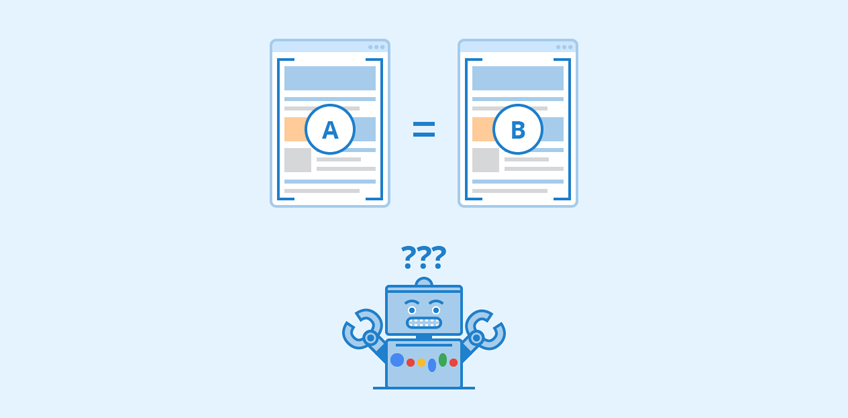
If your high-quality content is being distributed to all of these article sites, even if your rankings remain unaffected, but still that defeats the very purpose for someone else has got the access to your high-quality content without any sort of attribution.
On the other hand, if these article sites do provide the attribution, the various links to your internal pages, now become the syndicated links. For instance, if some site syndicates the article from your website that has got say, 7 links to your internal pages, and they syndicate the same to 10000 websites, you now have got 70000 new links that should have been internal links but are now external links that point to your website. History suggests, that a few years back certain brands got into trouble for syndicating their news content on the other external websites. However, even if negative SEO might not get you into trouble and attract the same kind of penalty, but still there remains a possibility. And, even if there is no penalty at all, there are chances that it will negatively impact your link data.
Problem 3: Nofollowed malware links within user-generated content
Still, there are a couple of negative SEO techniques that hardly get talked about and one of them is Nofollowed malware links. For instance, if your site showcases some user-generated content on your content like the comments and even if you get to nofollow such comments, those might point to stuff such as malware which will make Google identify your site as unsafe for the users if it happens to find such malware links on your website.
So, it is all about that fear and uncertainty that builds up if someone else has undertaken manipulative link building, rendering the SEO totally unworkable.
Negative SEO makes us lose that access to critical data and in turn, we won’t be able to make smart choices and decisions. You will never be able to figure out that behind the sharp dip in your page rankings to another has something to do with those 100000 spammy links if you won’t get access to your critical link data.
There could be several reasons behind lost rankings, for instance, duplicate content or even those hundreds or thousands of spammy links that point to your website, but negative SEO altogether makes it impossible to figure out the main cause. Since it becomes quite typical and tricky to figure out what is going on and the real cause behind the dip in the ranking, the SEO becomes quite uncertain.
Negative SEO makes your SEO totally uncertain and that is where the major issue arises. When SEO becomes less certain, that is the time when reliance on paid advertising increases. In that very period of time, paid search and social media really become crucial. At that time, as an SEO Company which is providing SEO services to its clients, you run a risk of losing them for you are now not in the position to indulge in smart decision making for them as their data has been destructed by negative SEO.
Ways to fight against negative SEO
Well, there are a couple of ways to fight against negative SEO like:
It is important to keep a track of your backlinks profile so as to keep those spammers away! To keep such spammers away from performing negative SEO on your website by building such spammy or low-quality links, you need to know when such redirects are built by someone. You can use online tools to manually ascertain if someone out there is building links to your website and it can show you the backlinks immediately. Certain tools even send email alerts when you gain or lose important quality backlinks.
It is crucial to secure your website from hackers and malware! Certainly, spam is the last thing that you would want to encounter on your website and there are several things you can probably do in order to protect your website. For instance, if you are using WordPress, you can make use of Google Authenticator that will create a 2-step verification password, every single time you will try to access or log in to your website. You should also create a strong password using a combination of characters and numbers. Last but not least, regularly create backups of your crucial files and the database at regular intervals.
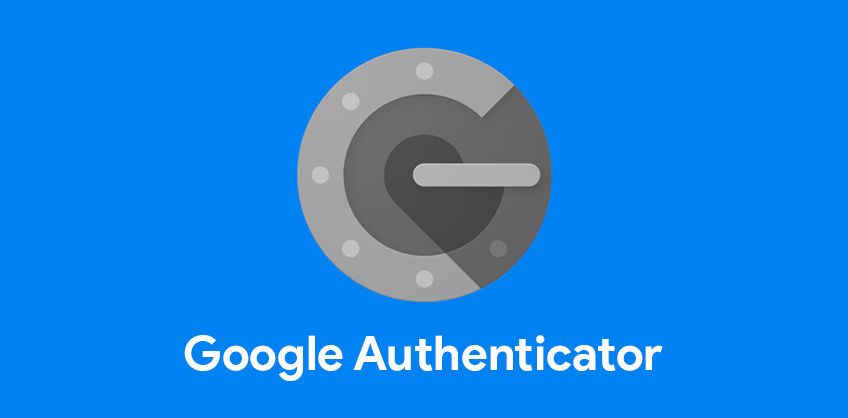
By keeping a check on content duplication, you can prevent those spammers from succeeding in their negative SEO efforts. One of the most common techniques employed by spammers, content duplication makes SEO efforts almost unworkable. They copy your content almost everywhere so that increases the chances that your website gets penalized by Google and you lose the rankings. You can use Copyscape Plagiarism Checker in order to check whether your website has got any of the duplicate pages on the internet. The tool will help you to ascertain whether your content has been published anywhere on the web without permission or authority. You can simply put in the link of your website in this tool or the body of the text that you wish to check, and through this, you can easily keep plagiarism under check.
Author Bio: 10SEOs rank the top SEO Companies at the global level based on their reviews and services that they render. It also provides reviews about their SEO services and ranks them based on a set methodology.

Recent Posts
ARE YOU A LEADING SEO SERVICE PROVIDER?
Get listed in world's largest SEO directory today!
Directory listing counter is continuously increasing, be a part of it to gain the advantages, 10333 Companies are already listed.

